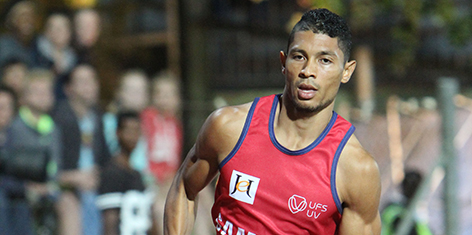
Wayde van Niekerk
Eight years before Wayde van Niekerk was born, Gabriel Tiacoh set a record of 31.74 in a 300m race. Now, 7 June 2015 has been marked as the historic day when the University of the Free State student sprinted 300m in 31.63 seconds at the Diamond League meeting in Birmingham.
Van Niekerk improved on his 2011 personal best 300m finish of 33.32 seconds, set in Stellenbosch. The African championship silver medalist said setting a new African record was “a blessing that I cannot really explain. Everything I achieve is God’s work.”
“What drives me is my family and friends, and the fact that I know my gift comes from God so running is my way of thanking the Lord,” he added.
Odessa Swarts, his mother, expressed how proud she is of her son. “I believe and trust with his faith in our heavenly father he is destined to become one of the greats South Africa has ever produced.”
His coach, Ans Botha, expressed her satisfaction, although she described his feat as “a little bit unexpected.” She said Van Niekerk’s achievement indicates that they are in the right track en route to the International Association of Athletics Federations (IAAF) World Championships in Beijing.
Van Niekerk is at present preparing for a 400m Adidas Grand Prix event in New York this Saturday.